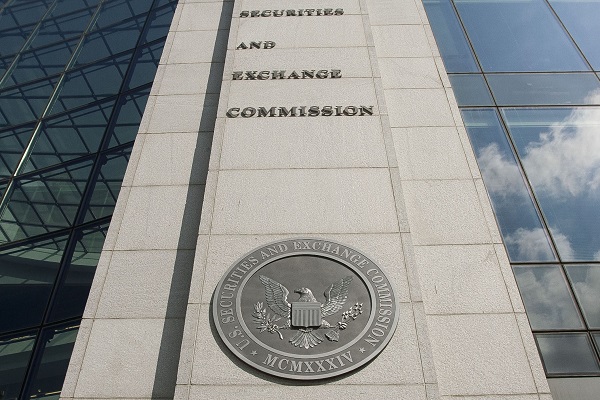 The SEC's Division of Enforcement will recommend that those scores of firms that have self-disclosed violations of the 1940 Act will not be subject to civil penalties, but will be required to return investment losses that resulted in costlier fund recommendations to affected investors. (Photo: Diego Radzinschi/ALM)
The SEC's Division of Enforcement will recommend that those scores of firms that have self-disclosed violations of the 1940 Act will not be subject to civil penalties, but will be required to return investment losses that resulted in costlier fund recommendations to affected investors. (Photo: Diego Radzinschi/ALM)
The Security and Exchange Commission's Share Class Selection Disclosure Initiative has brought the mutual fund recommendations of “scores” of RIAs under investigation, according to the agency's FY 2018 Annual Report.
The SCSD Initiative launched in February and ended in June, and was designed to rein in “potential widespread violations” of the Investment Advisers Act of 1940.
The program targeted registered fiduciary advisors' failure to fully disclose 12b-1 fees on mutual funds, and advisors' recommendations of higher-cost share classes of mutual funds when lower-cost shares of the same funds were available.
Under the Initiative, the SEC's Division of Enforcement will recommend that those scores of firms that have self-disclosed violations of the 1940 Act will not be subject to civil penalties. Firms will, however, be required to return investment losses that resulted in costlier fund recommendations to affected investors.
“Scores of investment advisers participated in the SCSD Initiative, which will result in charges against them,” write Stephanie Avakian and Steven Peikin, co-directors of the Division of Enforcement, in the report.
“We expect investors to benefit greatly from money that will be repaid to them by participants in the initiative. Importantly, a goal of this initiative is to ensure that advisers and their affiliates properly disclose their conflicts of interest,” they added.
The SCSD Initiative was rolled out in tandem with the SEC's Retail Strategy Task Force, also formed in FY 2018. The Task Force was designed to channel Agency resources to address advisor and broker “misconduct” in the retail sector, according to the report.
Prior to the SCSD Initiative, the SEC had brought 15 enforcement actions regarding share class disclosures in the previous five years. “Close to a dozen” pending investigation had been undertaken prior to the Initiative's rollout, according to the SEC.
“Despite these efforts, disclosure failures persist,” according to the Annual Report. Investigations into disclosure failures relating to 12b-1 fees take an average of two years.
“We believe that by pursuing this Initiative, we will identify, address, and remediate many more violations—and will do so much more quickly—than if we had continued to pursue these violations on a case-by-case basis,” the SEC added.
Overall, the SEC brought 821 enforcement actions in FY 2018, resulting in a total of $3.9 billion in disgorgement and penalties; $794 million was returned to harmed investors.
About 22 percent of those actions were brought against investment advisory firms, and another 13 percent were brought against broker-dealer misconduct.
The number of “stand alone” enforcement actions—490—was the most since FY 2015.
READ MORE:
SEC, DOL moving in tandem on investment rules
On fiduciary matters, the SEC should think more like a trust company, less like a bank — Carosa
© 2025 ALM Global, LLC, All Rights Reserved. Request academic re-use from www.copyright.com. All other uses, submit a request to [email protected]. For more information visit Asset & Logo Licensing.








